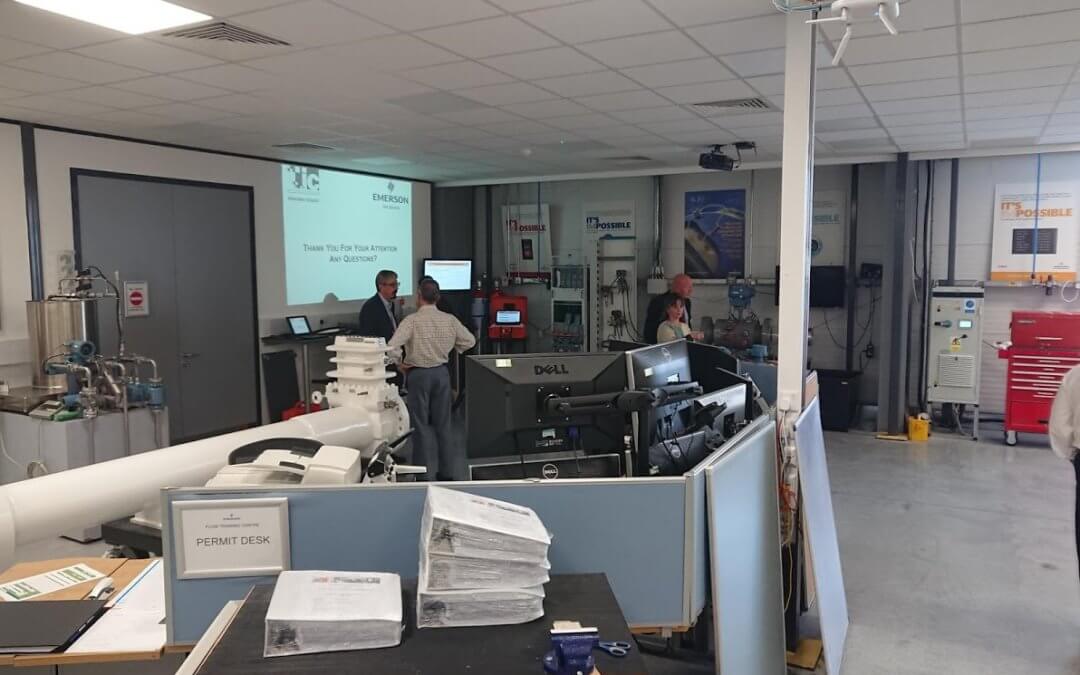The cart is empty!
Tips to Help You Choose the Best Corrosion Course
Gaining corrosion-specific qualifications could help you to propel your career to the next level. However, selecting what courses will help you achieve your professional career goals can be challenging. One of the questions you’ll need to answer is, how best do I gain my next corrosion qualification – online learning vs classroom learning?
In this article, we discuss the advantages and disadvantages of online classes vs classroom learning for corrosion professionals.
Online learning vs traditional learning: what’s the difference?
Learning online and learning in the classroom sound like very different beasts, and they are.
When you learn virtually, you must manage your time effectively and be highly self-motivated. The onus is on you to compete tasks and keep the momentum of learning going.
In the classroom, you’ll have the guiding hand of the lecturer, trainer, or teacher to help and motivate you. You’ll also have others to bounce off and engage with ─ which makes for a more relaxed learning experience.
Despite these differences, there are also many similarities between corrosion training provided online and that delivered in the classroom. For example, you will benefit from the same theoretical and practical learning, and the qualification you receive will be the same and regarded equally by prospective employers and industry bodies like ICorr.
The advantages and disadvantages of classroom learning
Usually, classroom learning for corrosion professionals is provided in specialized facilities – like ICorr’s Cathodic Protection Training & Examination Centre in Telford, where training in cathodic protection is delivered by ICorr and the Corrosion Protection Association (CPA), or IMechE’s corrosion courses that are delivered in their dedicated classroom facility in Sheffield. This isn’t the only benefit, however.
Advantages of learning in a classroom include:
- The physical contact between trainers and learners. It’s easy to ask questions and to learn from questions asked by others.
- There can be a healthy competitive element in the classroom setting, and this can help to keep you motivated.
- You’ll also get to forge new professional relationships with other corrosion professionals ─ a great way to extend your network.
- Classroom learning helps to keep you disciplined in your approach.
- Because you’re away from home and work, your focus is not disturbed either during learning hours or when you are doing your ‘homework’ in your temporary accommodation.
What’s there not to like about classroom learning? These disadvantages should be considered when making your choice of learning options:
- You will need to pay for your travel and accommodation, as well as meals.
- If you don’t attend a classroom session, you miss it completely.
- The courses are usually more expensive, because there is a whole layer of infrastructure to pay for.
- They are time-bound. You must adhere to a strict schedule, irrespective of other commitments.
- If you are self-employed, you won’t be earning while you are learning.
The advantages and disadvantages of online learning
You can take online lessons anywhere there is internet access. In your home, your office, or even while commuting by train. Other advantages include:
- You are not bound by time or location. There may be a specified ‘complete by’ date, but online lessons offer the flexibility to view them at anytime and anywhere.
- You work at your own pace, without the stricter, time-bound approach of classroom learning, meaning you can fit your course in to suit the demands of your professional and personal life.
- No loss of earnings while learning, and you save on travel time.
- It’s more cost-effective – courses are generally cheaper, and you don’t have the added expense of accommodation and meals to consider.
- You may have the opportunity to meet corrosion professionals online, and these could be from anywhere in the world – a great way to extend your professional network globally.
While these advantages are very tempting, you should also think about the following disadvantages of eLearning:
- It can be challenging to stay motivated – you must be self-disciplined and have good time management skills.
- eLearning requires you to be technologically adept, and able to use the latest communication technology ─ and what if you lose your data or connection?
- A lack of social interaction means you don’t benefit from other students in quite the same way as you do in the classroom.
Which corrosion course is best for you? Online learning vs classroom
Once you know which qualification is best for you at any given stage in your career, and you are ready to achieve your next career goals, you’ll need to decide which training platform best suits your needs: online learning or classroom learning. Here are a few questions that will help you make the right decision:
What’s my ability to learn?
Think about the time it will take you to complete the course. Do you have the time available to spend a few days in the classroom? If you do, do these coincide with the course dates?
You’ll also need to consider if you have the technology to take an online course and if you have the right technology available to you.
Thirdly, how is your motivation and self-discipline? When you take a class-based corrosion course, you are held to account by the course tutor and those around you. Do you perform better in this learning situation, or do you learn more effectively when left to your own devices?
Finally, can you attend the classes from a logistics point of view? Do you drive? Will train times be prohibitive? Is the distance prohibitive? Can you be away from home overnight?
What is my socialization preference?
If you are learning by traditional methods, you’ll be surrounded by like-minded individuals. Are you the type of person who thrives in this atmosphere?
Perhaps you are more introverted, and don’t care to ask questions in front of other people.
Do you want to take lunch breaks as opportunities for focused study, or could these impromptu group sessions help you embed the learning you’ve received?
We’re not all social creatures, and we don’t all learn equally well in the classroom. If this sounds like you, eLearning could be the way to go.
How much will the course cost – is it cost-effective for me?
The last question you should ask is whether attendance of class-based learning will be cost-effective. There are many things to consider here:
- How much does the course cost?
- Will you need to take unpaid time off work?
- Can the cost of the course be subsidized, by your employer or other source?
- Upon completion, what impact will this have on your earnings potential in the future?
Qualifications in corrosion engineering and corrosion sciences, and job-related corrosion specializations, are an investment in yourself and your career.
For advice on which course would be best for you, and to learn what corrosion training, course, and qualifications are available through ICorr, please email us at admin@icorr.org with the subject line ‘Interested in ICorr corrosion training’. Tell us what you would like to know, and we’ll answer your questions by return email.


